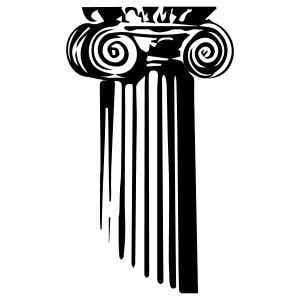
Sunday School; A Pillar Bible Study
Sunday School; A Pillar Bible Study
A new Catholic Bible Study podcast, featuring Pil…
- 52 minutes 28 secondsBetter than Ezra
In these readings for the Third Sunday in Ordinary Time, Year C, the Israelites finally acknowledge their sins and Jesus declares a Jubilee Year.
Already read the readings? Skip ahead to 7:35
Reading 1 - Nehemiah 8:2-4a, 5-6, 8-10
Psalm cf John 6:63c Psalm 19: 8-10, 14
Reading 2 - 1 Corinthians 12:12-30
Gospel - Luke 1:1-4; 4:14-21
This is a public episode. If you’d like to discuss this with other subscribers or get access to bonus episodes, visit www.pillarcatholic.com/subscribe22 January 2025, 1:00 pm - 46 minutes 27 secondsMawwiage is what bwings us together
It’s the Second Sunday in Ordinary Time! This week, Dr. Scott Powell talks about ancient Israel’s understanding of a jubilee year. He also shares a few reasons the wedding at Cana is more than just a magic trick precursor to Jesus’ other miracles.
Already read the readings? Skip ahead to 5:15
Reading 1 - Isaiah 62:1-5
Psalm 96: 1-3, 7-10
Reading 2 - 1 Corinthians 12:4-11
Gospel - John 2:1-11
This is a public episode. If you’d like to discuss this with other subscribers or get access to bonus episodes, visit www.pillarcatholic.com/subscribe15 January 2025, 1:00 pm - 10 minutes 10 secondsBonus: Off The Wall with JD
JD asks some follow-up questions after going through the readings for the Feast of the Baptism of the Lord, Year C. We’re trying this out— give us feedback in the comments below!
This is a public episode. If you’d like to discuss this with other subscribers or get access to bonus episodes, visit www.pillarcatholic.com/subscribe8 January 2025, 2:00 pm - 40 minutes 38 secondsWater and a servant song
It’s the Feast of the Baptism of the Lord! Join Dr. Scott Powell, JD Flynn and Kate Olivera as they unpack the first of the ’servant songs’ found in Isaiah— and link it to the creation story in Genesis. Scott talks about Acts 10, the turning point of the New Testament.
Then, he makes some really cool connections about water.
Already read the readings? Skip ahead to 6:20
Reading 1 - Isaiah 42:1-4, 6-7
Psalm 29: 1-4, 9-10
Reading 2 - Acts 10: 34-38
Gospel - Luke 3: 15-16, 21-22
This is a public episode. If you’d like to discuss this with other subscribers or get access to bonus episodes, visit www.pillarcatholic.com/subscribe8 January 2025, 1:00 pm - 53 minutes 29 secondsA hundred bad guys with swords
Happy Feast of the Epiphany! This week, Dr. Scott Powell gives his take on the tradition of the Three Kings— and reflects on the return of the glory of God.
Already read the readings? Skip ahead to 7:00
Reading 1 - Isaiah 60:1-6
Psalm 72:1-2, 7-8, 10-13
Reading 2 - Ephesians 3:2-3a, 5-6
Gospel - Matthew 2:1-12
Listen: The Psalms season of Sunday School
This is a public episode. If you’d like to discuss this with other subscribers or get access to bonus episodes, visit www.pillarcatholic.com/subscribe1 January 2025, 1:00 pm - 45 minutes 17 secondsNobody puts Hannah in the corner
It’s the Feast of the Holy Family! Join Dr. Scott Powell and Kate Olivera as they unpack one of Scott’s favorite stories from Scripture, St. Paul’s letter of encouragement to Colossia and that time Mary and Joseph lost Jesus.
Already read the readings? Skip ahead to 7:40
Reading 1 - 1 Sm 1:20-22, 24-28
Ps 128: 1-5
Reading 2 - Col 3:12-21 or 3:12-17
Gospel - Lk 2:41-52
This is a public episode. If you’d like to discuss this with other subscribers or get access to bonus episodes, visit www.pillarcatholic.com/subscribe26 December 2024, 1:00 pm - 50 minutes 18 secondsThe past days and the last days
Merry Christmas, everyone! In reflecting on the readings for Christmas Mass During the Day, Year C, Dr. Scott Powell talks about the importance of context in defining the word “gospel.”
Already read the readings? Skip ahead to 6:27
Reading 1 - Is 52: 7-10
Ps 98: 1-6
Reading 2 - Heb 1:1-6
Gospel - Jn 1:1-18
This is a public episode. If you’d like to discuss this with other subscribers or get access to bonus episodes, visit www.pillarcatholic.com/subscribe23 December 2024, 1:00 pm - 45 minutes 26 secondsAn exclamation and the face of God
This episode has been re-published after it failed to populate podcast apps. Our apologies!
Join Dr. Scott Powell, JD Flynn and Kate Olivera as they unpack the readings for the Fourth Sunday of Advent, Year C— including the Visitation and the minor prophet Micah’s warnings to a prosperous Israel.
Already read the readings? Skip ahead to 5:50
Reading 1 - Mi 5:1-4a
Ps 80:2-3, 15-16, 18-19
Reading 2 - Heb 10:5-10
Gospel - Lk 1:39-45
This is a public episode. If you’d like to discuss this with other subscribers or get access to bonus episodes, visit www.pillarcatholic.com/subscribe21 December 2024, 4:15 am - 31 minutes 37 secondsOn Gaudete Sunday, we wear rose
Shout for joy, everyone! It’s Gaudete Sunday. Dr. Scott Powell, JD Flynn and Kate Olivera talk about the readings for the Third Sunday of Advent.
Already read the readings? Skip ahead to 4:25
Reading 1 - Zep 3:14-18a
Is 12:2-6
Reading 2 - Phil 4:4-7
Gospel - Lk 3:10-18
This is a public episode. If you’d like to discuss this with other subscribers or get access to bonus episodes, visit www.pillarcatholic.com/subscribe11 December 2024, 1:00 pm - 35 minutes 7 secondsThe problem, the solution and the promise
This week, Dr. Scott Powell, JD Flynn and Kate Olivera talk about the readings for the Second Sunday of Advent, Year C— more bright moments in the midst of darkness.
Already read the readings? Skip ahead to 5:10.
Reading I - Bar 5:1-9
Psalm - Ps 126: 1-6
Reading II - Phil 1: 4-6, 8-11
Gospel - Lk 3: 1-6
This is a public episode. If you’d like to discuss this with other subscribers or get access to bonus episodes, visit www.pillarcatholic.com/subscribe4 December 2024, 1:00 pm - 41 minutes 26 secondsHearts up!
It’s the start of a new season of Sunday School— and a new liturgical year! But the readings this week are not exactly celebrating.
Join Dr. Scott Powell, JD Flynn and Kate Olivera as they talk about the readings we will hear at Mass for the First Sunday of Advent.
Already read the readings? Skip ahead to 3:30
Reading 1 - Jer 33:14-16
Psalm - Ps 25: 4-5, 8-9, 10, 14
Reading 2 - 1 Thes 3:12—4:2
Gospel - Lk 21: 25-28, 34-36
This is a public episode. If you’d like to discuss this with other subscribers or get access to bonus episodes, visit www.pillarcatholic.com/subscribe27 November 2024, 1:00 pm - More Episodes? Get the App
Your feedback is valuable to us. Should you encounter any bugs, glitches, lack of functionality or other problems, please email us on [email protected] or join Moon.FM Telegram Group where you can talk directly to the dev team who are happy to answer any queries.
 Catching Foxes
Catching Foxes
 Clerically Speaking
Clerically Speaking
 Every Knee Shall Bow (Your Catholic Evangelization Podcast)
Every Knee Shall Bow (Your Catholic Evangelization Podcast)
 Godsplaining
Godsplaining
 The Pillar Podcast
The Pillar Podcast
 Catholic Stuff You Should Know
Catholic Stuff You Should Know